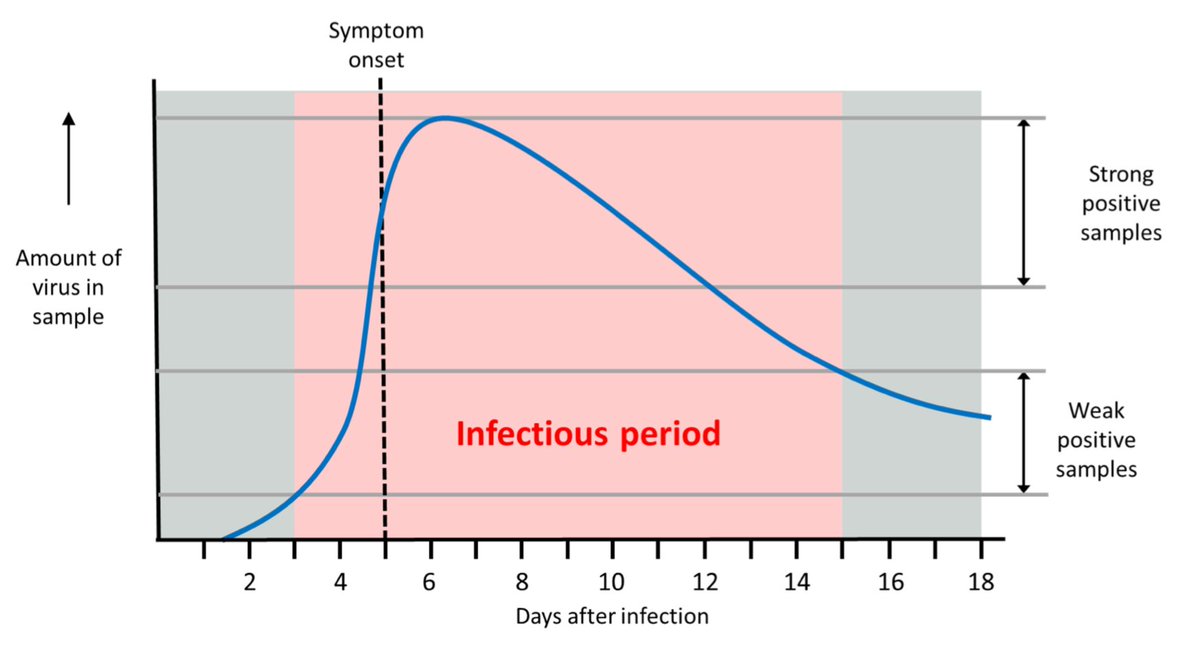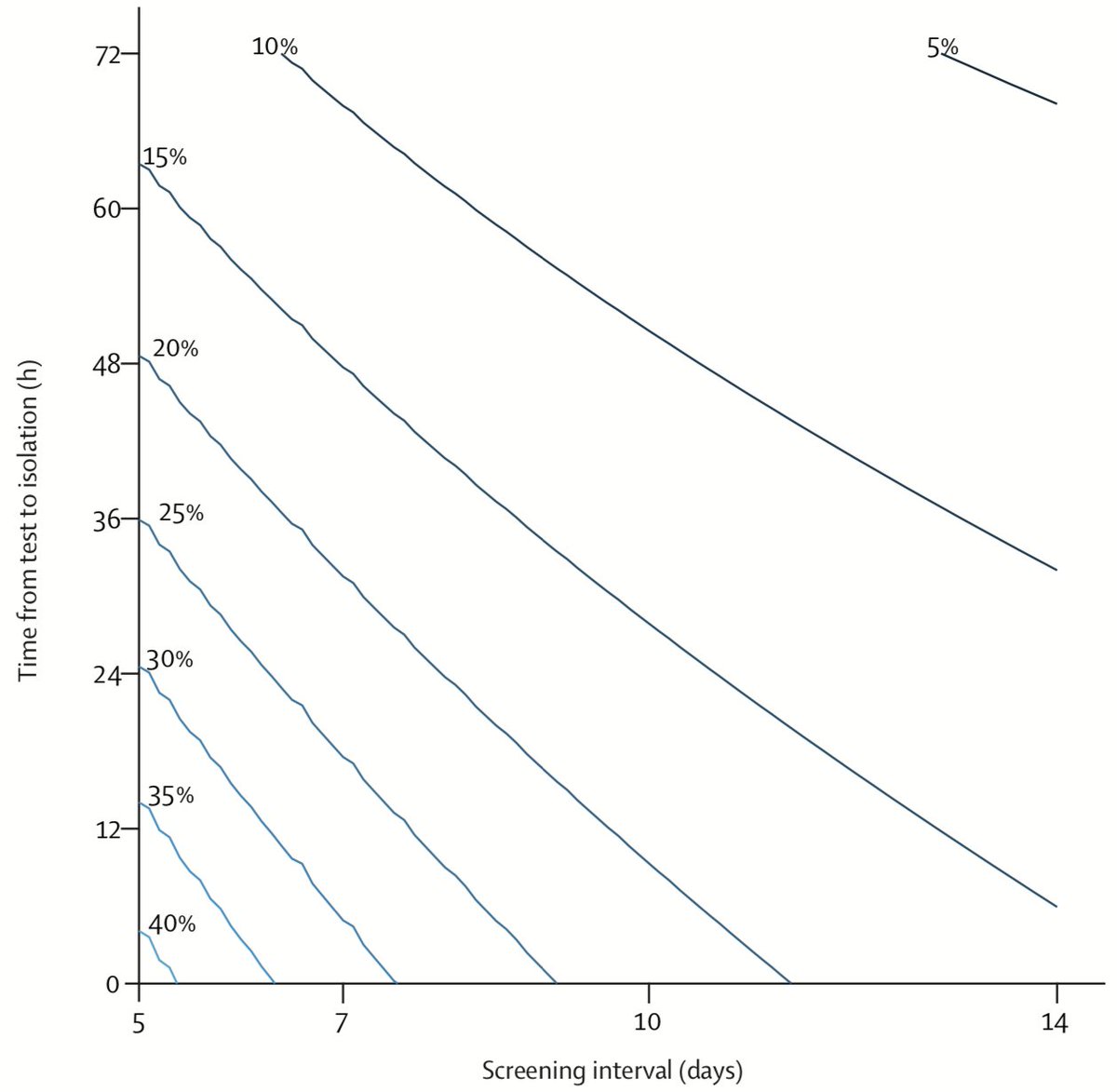What are the benefits/limitations of mass testing certain populations for SARS-CoV-2 regardless of symptoms? A thread... 1/
SARS-CoV-2 can transmit before symptoms appear, so by the time a symptomatic case is detected, they may have infected several others - which means standard test & trace is always playing catch up. Additional testing could therefore help get ahead of this transmission cycle... 2/
There are several potential uses of scaled up testing, from control of local flare-ups to prevention of outbreaks in high risk settings to resumption of events that would be too risky otherwise. But there are a few things to consider... 3/
One issue is people may test positive without being infectious, particularly if background infection level is low. This could happen because of sample contamination, or residual virus traces following earlier infection (figure from recent SAGE report: https://www.gov.uk/government/publications/tfms-consensus-statement-on-mass-testing-27-august-2020)">https://www.gov.uk/governmen... 4/
Even if a test had 99.9% probability of correctly identifying active infections, mass testing of UK-sized population would mean 10,000s of & #39;non-infectious positives& #39;. These people could face unnecessary isolation (although rapid extra confirmatory test could help avoid this). 5/
For context, around 1.2m people in Hong Kong have registered for recent mass testing drive (out of 7.5m). Of 128,000 initial samples tested, 4 of the 6 positives detected were from recovered patients: https://www.scmp.com/news/hong-kong/health-environment/article/3100027/hong-kong-third-wave-officials-give-testing">https://www.scmp.com/news/hong... 6/
Scaled up testing will therefore have most obvious benefit in higher risk environments/workplaces, or during well-defined outbreaks. Even so, testing would need to be frequent and fast to make a notable difference (e.g. https://www.medrxiv.org/content/10.1101/2020.06.22.20136309v2">https://www.medrxiv.org/content/1... & https://www.thelancet.com/journals/laninf/article/PIIS1473-3099(20)30630-7/fulltext)">https://www.thelancet.com/journals/... 7/
This recent pilot by @neilhall_uk and co provides some optimism about possible speed & adherence - 85% of participants at Norwich Research Park returned all four weekly samples, and majority of tests had <24hr turnaround time ( https://www.norwichresearchpark.com/news/mass-testing-pilot-paves-way-weekly-covid-checks)">https://www.norwichresearchpark.com/news/mass... 8/
As well as exploring expanded testing options, crucial to get existing systems working better too. At the moment a lot of symptomatic people in UK aren’t getting tested and aren’t isolating fully, reducing effectiveness of this measure ( https://www.medrxiv.org/content/10.1101/2020.06.01.20119040v1).">https://www.medrxiv.org/content/1... 9/
Symptomatic cases & their contacts have a much higher probability of being infected than a random person without symptoms, so need to ensure these people can be tested/traced easily and rapidly, and have support to isolate/quarantine. 10/
There& #39;s also plenty of scope for further testing innovation (e.g. this suggestion by @michaelmina_lab @Kotlikoff https://www.nytimes.com/2020/07/03/opinion/coronavirus-tests.html).">https://www.nytimes.com/2020/07/0... To reduce impact of COVID-19, we& #39;ll need all available tools - and new ones - working as well as possible in combination. 11/11

 Read on Twitter
Read on Twitter



